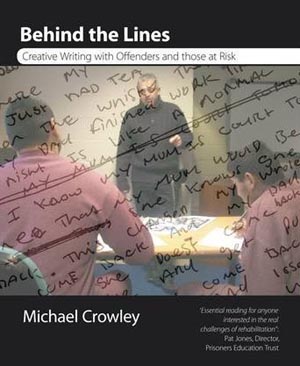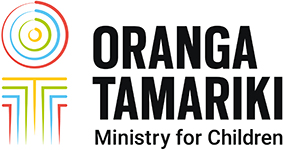Learning through storytelling
29 April 2013
Behind The Lines: Creative Writing with Offenders and People at Risk
By Michael Crowley (Waterside Press, 2012)
Reviewed by Kelly Kilgour
The product of 15 years working with offenders and people at risk in prison and the community, Behind the Lines is a practical guide for anyone teaching literacy and creative writing in prisons or to at-risk people.
 This book is designed to be read either from cover to cover or dipped into. I’d suggest the former with follow-up repeated dips. Not only does it offer fascinating case studies and dozens of exercises developed from the author’s extensive experience, but it also identifies the subconscious motivation of offenders, and offers alternatives to explore and potentially rehabilitate them – if they want to be rehabilitated. Because as Crowley points out, “Rehabilitation is not something done to someone as punishment. People must participate.”
This book is designed to be read either from cover to cover or dipped into. I’d suggest the former with follow-up repeated dips. Not only does it offer fascinating case studies and dozens of exercises developed from the author’s extensive experience, but it also identifies the subconscious motivation of offenders, and offers alternatives to explore and potentially rehabilitate them – if they want to be rehabilitated. Because as Crowley points out, “Rehabilitation is not something done to someone as punishment. People must participate.”
One key aspect of Crowley’s work is based on the premise of how we are all impacted by story. Not just in terms of the stories we read, see and hear, but in the stories we tell – specifically about ourselves and how we use these stories to shape our identity.
Story confirms identify
Crowley believes that offenders often commit crime in order to tell the tale – whether to the law or to people they want to impress (loved ones, friends, associates etc). While there can be various extenuating reasons that lead to the motivation to commit a crime, “the story of what they have done, and the telling of it, confirms their identity”.
 Apart from knowing that we will die one day, the ability to learn through story is what separates humans from every other living organism on the planet. Stories are about what it means to be human. They explain who we are and shape our identity.
Apart from knowing that we will die one day, the ability to learn through story is what separates humans from every other living organism on the planet. Stories are about what it means to be human. They explain who we are and shape our identity.
Crowley has identified that story can be used as a rehabilitative tool to examine cause and effect behaviour and its moral purpose. His book provides evidence that prisoners’ frustration and anger can be channelled into creative insight and self-reflection. In turn, this will enable them to better understand the reasons for their behaviour and create positive change.
Behind the Lines also has convincing answers for people who may be critical or sceptical of creative writing as a rehabilitative tool. Based on Crowley’s vast experience, the book’s exercises are reinforced with insights and suggestions about what works to engage and motivate often wary participants.
Kelly Kilgour developed and field produced the television series "Songs From the Inside", and is a writer for its second season. He has a BA in Performing Arts and has an MA in Creative Writing from the International Institute of Modern Letters, Victoria University, Wellington. He is also working in Prison Programme Support at The Learning Connexion.




